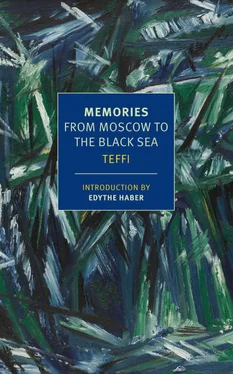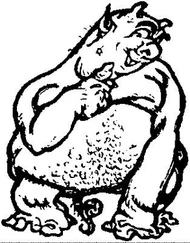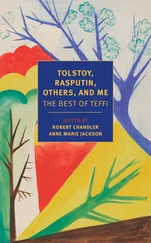Venedikt Myakotin (1867–1937) was a Populist politician; expelled from Soviet Russia in 1922, he became a professor of history in Sofia in 1928, then lived his last years in Prague. Fyodor Volkenstein (1874–1937) was a lawyer, writer, and journalist; he remained in the Soviet Union. Alexey Ksyunin (1882–1938) was also a journalist, at one time head of the Russian press bureau in Constantinople. Alexey Titov (dates unknown) was a chemical engineer and Populist politician; he emigrated to Paris. Ilya Ilyashenko (1859–1920), deputy minister of justice from 1913 to 1917, was executed by the Bolsheviks in 1920.
These lines by Vladimir Mayakovsky were well known. Mayakovsky recalled reports of sailors singing them as they marched on the Winter Palace in 1917 (“Tol’ko ne vospominanii”, in V.V. Maiakovskii, Polnoe sobranie sochinenii (Moscow, IMLI, 1955–61) v 12: Stat’i, zametki i vystupleniia, p. 149–59).
This song became popular among soldiers and sailors, both Red and White, during the Civil War. Like many traditional songs, it proved remarkably adaptable to varying political requirements.
Nikolay Yevreinov (see notes 9 and 23) wrote about how art should take its inspiration from life. Haber comments on this scene, “Teffi compares the sight to theatrical experiments of the recent past, except in this case it was not a performance; life itself forced the actors to play the role, as it would compel them again and again to reinvent themselves in emigration.”
Stenka Razin, a Russian folk hero, was the Cossack leader of a major revolt in 1670–71.
A quote from “The Reaper” by Alexey Koltsov (1809–42).
A quote from “Dubinushka” (“The Club”). Originally written by V. I. Bogdanov, this was refashioned to make its sentiments more revolutionary. The famous bass Fyodor Chaliapin included it in his repertory.
Fyodor Volkenstein (see note 100) had separated from his wife, Natalya Krandievskaya (see note 85), in 1914. Krandievskaya subsequently married Alexey Tolstoy and emigrated with him and her son by Volkenstein—the little boy referred to here—only to return to the Soviet Union in 1923. This boy, who became a physicist, is the anonymous friend to whom Stalin’s daughter, Svetlana Allilluyeva, addressed her “Twenty Letters to a Friend.”
An allusion to a famous “gypsy song” by the poet Apollon Grigoriev. It begins: “O speak to me, you at least, my seven-stringed friend!”
Albert Zabel (1834–1910) was a teacher, a composer, and the main harpist at the Mariinsky Theater.
Both the Hebrew and Church Slavonic bibles, unlike the King James Bible, include instructions of this kind before the main text of each psalm.
Novoe Vremya , a Petersburg daily newspaper, published 1868–1917. Under its last editor, A. S. Suvorin, it was considered extremely reactionary. The Bolsheviks closed it down the day after the October revolution.
A cold soup made from kvas (a slightly alcoholic drink made from fermented bread) and the leafy tops of various root vegetables, often with the addition of some kind of sturgeon.
Like many of Teffi’s poems, this poem, written on the Shilka , was set to music by the émigré singer, Alexander Vertinsky (1889–1957), who titled it “Song about the Motherland.” Vertinsky returned to the Soviet Union in 1943 but remained the object of official disapproval until long after his death.
The most likely meaning of these words is “Beautiful woman!” Guzel means “beauty” in Persian and in many Turkic languages. Kari is a Turkish word for “spouse,” but it is also used, somewhat disrespectfully, to mean “woman.” The soldiers are, of course, African, not Turkish—but much of northern Africa had once been a part of the Ottoman Empire.
Where are you, old man? (French)
The soldiers’ song from Les Huguenots , a once extremely popular and successful grand opera by Giacomo Meyerbeer.
Tsarist Russia in many ways followed the German educational system. A gymnasium is a secondary school with a strong emphasis on academic learning, similar to a British grammar school or a prep school in the US.
Teffi’s younger sister Elena Lokhvitskaya (1874–1919) was the closest to her of her many siblings. She too wrote both poetry and plays. In 1922, soon after receiving the news of Elena’s death, Teffi wrote in a letter to Vera Bunina, “I feel complete emptiness. It’s as if, because of this news, a wind has passed over my earth and swept everything away. I haven’t spoken, I’ve grown thin and black in four days.” Diaspora , 1 (Paris–SPb, 2001), 365.
The Greens were armed bands of peasants who, at one time or another, fought both Whites and Reds as they tried to protect their villages from reprisals and requisitioning. After the defeat of the Whites, they constituted the last remaining military challenge to the Bolshevik regime. In late 1920 a Green army under the leadership of the Socialist Revolutionary Alexander Antonov numbered as many as 50,000 and controlled a large part of the province of Tambov.
A small town, now a holiday resort, about fifteen miles from Novorossiisk.
Now known as Trabzon, this town in northeastern Turkey was occupied by the Russians at the end of World War I.
To this day, there is a large cement factory in Novorossiisk, one of the oldest such factories in Russia, founded in 1882.
This is inconsistent with Akyn’s earlier account on page 171: “He had once got so very angry… that he had ‘torn his throat.’” Teffi may have intended the reader to understand that she herself heard different stories about this cook—or, more likely, this is simply a mistake on her part.
Fyodor Batkin (1892–1923) fought in World War I, first as a volunteer in the Belgian army, then in the Russian Army. During the summer of 1917, as the leader of the “Black Sea Delegation” set up by Admiral Kolchak to combat defeatism, he gave impassioned patriotic speeches in Moscow and Petrograd.
The flag of the Russian navy.
The evening edition of The Stock Exchange Gazette , an important Petersburg daily newspaper, published 1861–1879 and 1880–1917. Teffi was a regular contributor.
After fighting for the Whites, Batkin emigrated to Turkey. There, in 1920, he was recruited by the Cheka. In 1922, however, after returning to Russia without authorization, he was arrested and shot.
Bobchinsky and Dobchinsky are comic characters in Gogol’s play The Government Inspector . Like Tweedledee and Tweedledum, they are inseparable, always appearing on stage at the same time.
A private school in Petersburg.
Leonid Andreyev (1871–1919) wrote plays, novels, and short stories. Konstantin Arabazhin (1866–1929) was a literary critic and editor. Akim Volynsky (1861–1926) was a critic and art historian. For Meyerhold, see note 23.
Читать дальше












